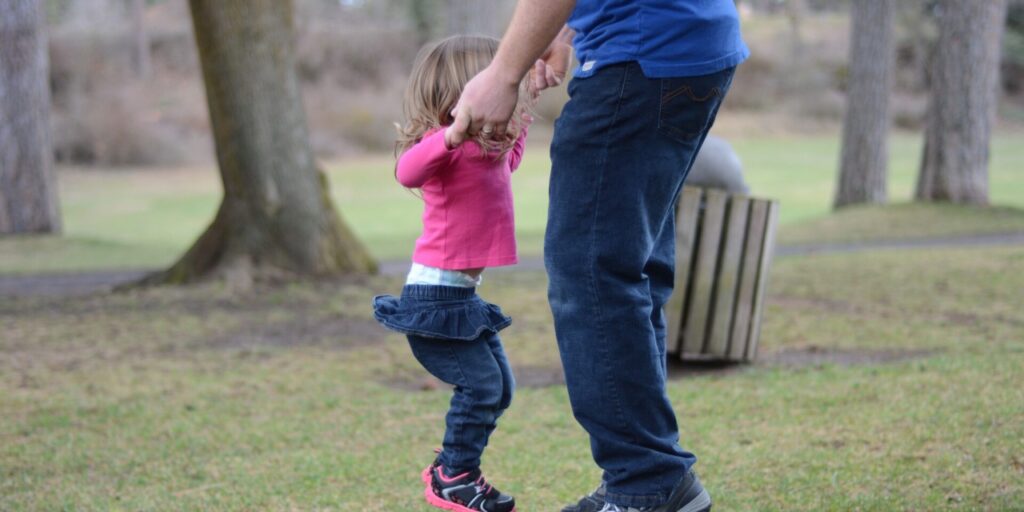- Reunification therapy restores damaged child/parent relationships - February 22, 2023
- A look back at helpful advice for separated/divorced parents - January 3, 2023
- Co-parenting over the holidays sure to bring new challenges - December 8, 2022
By Paul Russell, LegalMatters Staff • Parents entangled in legal proceedings after a relationship breaks down quickly realize the benefit of working with a service that coordinates and oversees the visits of the child with the non-custodial parent, says Techenia Archer, service support coordinator with Renew Supervision Services.
“We are a child-centred organization made up of professionals in the legal and social services fields,” she says. “We work with both primary and secondary caregivers, always focusing on the best interest of the child.”
Archer explained Renew’s primary clients are non-custodial parents who are restricted to supervised visits with their children by the court. She says her group works with both parents to set up a time and location for the supervised visit.
“Often, the secondary parent may feel the custodial parent is calling all the shots in terms of the children’s availability,” Archer tells LegalMattersCanada.ca. “They may feel the other parent is being spiteful and not willing to fully cooperate.
Long-term goal is unsupervised visits
“We tell the non-custodial parent to take what they can get, because it’s an opportunity for them to see their children,” she adds. “We remind them to focus on the long-term goal, which is to be granted unsupervised visits with their children.”
Archer says primary parents also rely on Renew to arrange supervised visits with their ex-partner.
“Maybe they don’t feel comfortable leaving their children with the other parent,” she says. “There’s no judgment on our side. We will reach out to the other parent and let them know that we want to facilitate a supervised parenting time.”
In most cases the other parent agrees, Archer says.
“Sometimes the other party is reluctant to come on board, but they know this is something that has to be done,” she explains.
Many locations for supervised visits
Supervised visits can happen in one of the parent’s homes or in a neutral location, such as a community centre, restaurant, library or a park, Archer says.
“We also have an office based in Scarborough where Toronto-area clients can meet for a visit,” she says. “We have made the office space as child-friendly as possible, with a variety of toys for younger children.”
There are two types of supervised visits, Archer says.
- Common parenting mistakes after divorce or separation
- Custody arrangements protect children after breakups
- Children with special needs find separation or divorce traumatic
“With regular supervised parenting time, our supervisors are like a fly on the wall, so they do not intervene unless there’s a health and safety concern or a conversation is not child appropriate, or if a certain topic causes a child distress,” she says. “If that happens, the supervisor will step in and redirect the conversation.”
Renew also offers guided parenting time, Archer says, explaining this is for parents who feel they may need more guidance and structure during the visit. Renew will team them with an early childhood educator who is able to give them strategies during the visits of how to interact with their child, or can offer feedback on their behaviour, she says.
‘Standing shoulder to shoulder with the parents’
“It’s almost like we are standing shoulder to shoulder with the parents, but then we take a step back, and allow the parents to do the parenting,” Archer says. “After, we may pull them aside and say, ‘I like how you did this but maybe next time, try this.’”
With every supervised visit, she says Renew staff will take notes of the interactions between the parents and the children and make the documentation available to both parents after the visit.
“Many family lawyers have praised the quality of the parenting time notes that we provide,” Archer says.
To ensure that Renew supervisors are unbiased in these sessions, she says they are not told beforehand about the legal status of the parents in dispute beforehand.
“That can be extremely helpful for any parent who is having their parenting abilities challenged in the courts,” says Archer. “We purposely send the supervisors in blind, so they stay objective when writing their report after.
Feedback for each parent
“When the parents get their notes back, they are actually getting feedback on how they are doing as a caregiver. This benefits both the primary and secondary caregiver, as it helps them reflect on how to interact with their children.”
She notes that some parents are not happy when they read the report.
“Our documentation provides the full picture of that family dynamic in writing, so it is eye-opening for the primary caregiver as well,” Archer says. “We see a lot of growth and changes that occur within families, spurred on by what we provide in our documentation.”
She says that Renew clientele works with families across the Greater Toronto and Hamilton Area, as well as Barrie, St. Catharines and Ottawa, with children ranging from newborn to young teens. While most clients are male/female couples, Archer says her organization also helps LGBTQ couples to deal with family issues.
‘They present a very different family dynamic’
“They present a very different family dynamic, which is interesting to see,” she says.
With conventional families, Archer says it was once assumed that the father was the parent who required supervised visits with his children.
“That stereotype is incorrect. We deal with many mothers who require supervision with their children, perhaps for emotional or mental health reasons,” she says.
“What is truly rewarding is that we often see fathers who go above and beyond to just spend time with their children,” Archer adds. “They are not the ‘deadbeat dad’ that many people envision.”

